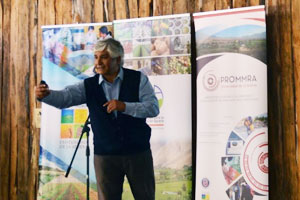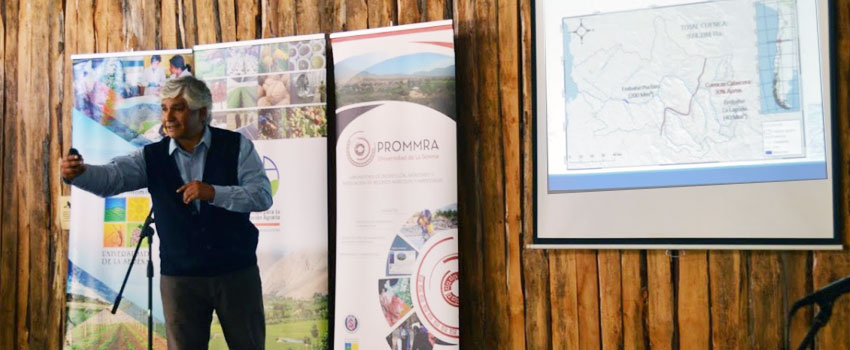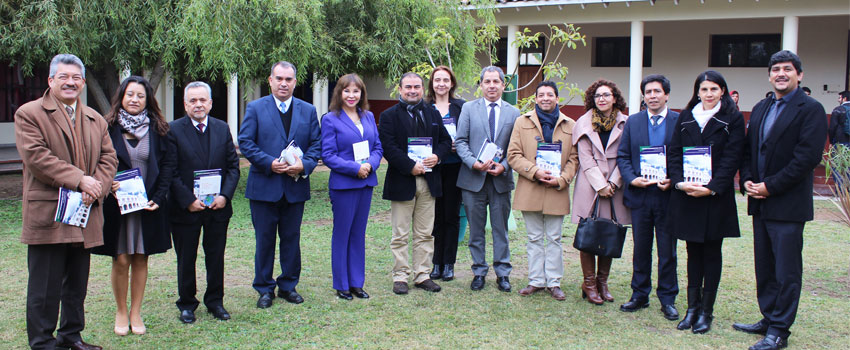
University authorities, directors, academics, officials and students participated in the presentation of both publications.
As part of the program to celebrate the 18th anniversary of the Faculty of Social and Economic Sciences of the U. de La Serena, the launching ceremony of Volume 19 - No. 2 (2017) of the Ruta University Magazine and the monograph “Development of geographical thinking: contributions to the link between research and teaching.”
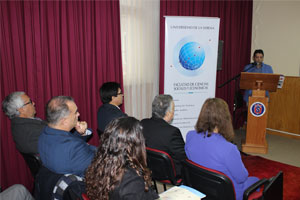 Present at the presentation of both publications were the Academic Vice-Rector, Dr. Jorge Catalán; the Vice-Rector for Research and Postgraduate Studies, Dr. Eduardo Notte; the Director of Postgraduate and Postgraduate Studies, Dr. Jorge Rojas; the Dean of FACSE, Dr. Luperfina Rojas; the Faculty Secretary, Mg. Carolina Rodríguez; directors of Departments and Schools, academics, officials and students of said Faculty.
Present at the presentation of both publications were the Academic Vice-Rector, Dr. Jorge Catalán; the Vice-Rector for Research and Postgraduate Studies, Dr. Eduardo Notte; the Director of Postgraduate and Postgraduate Studies, Dr. Jorge Rojas; the Dean of FACSE, Dr. Luperfina Rojas; the Faculty Secretary, Mg. Carolina Rodríguez; directors of Departments and Schools, academics, officials and students of said Faculty.
Ruta Magazine, whose latest issue is available at http://revistas.userena.cl/index.php/ruta, is an academic publication of the Department of Economic and Business Sciences of the FACSE, which brings together original scientific research articles related to business management from the perspective of strategic, economic and legal studies. Its objective is to stimulate the publications of research work in the three main areas of organizational management of companies, as well as to promote academic exchange between researchers and teachers of these subjects.
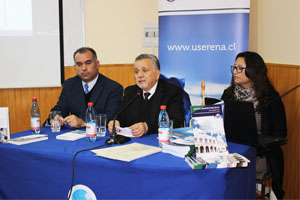 The director of the magazine, Mg. Mauricio Castillo stressed that this publication “has a long tradition, since it has been published since 1998, since 2011 it is already in digital format and since 2013 we have been working on a process that seeks its indexing in international catalogues. and thus contribute to the development of research not only of the Faculty, but of the entire University.”
The director of the magazine, Mg. Mauricio Castillo stressed that this publication “has a long tradition, since it has been published since 1998, since 2011 it is already in digital format and since 2013 we have been working on a process that seeks its indexing in international catalogues. and thus contribute to the development of research not only of the Faculty, but of the entire University.”
The academic also indicated that this year the results of the journal's indexing in Latindex and CLASE are expected, and that 2019 will be a year of preparation to undergo indexing in the SciELO catalog and for the Conicyt contest.
For its part, the monograph “Development of geographical thinking” (Editorial ULS) attempts to link undergraduate research and teaching, considering the development of geographical thinking for the teaching-learning of geography as a fundamental thematic axis.
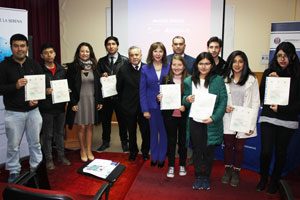 The researcher responsible for this monograph, Dr. Fabián Araya, stated that this publication, selected in the DIDULS Monograph Contest and in which academics from the state university and foreign institutions participate, is the fruit of a process which has been developed between 2011 and 2017 at the University, specifically in the context of the Didactics, Research and Educational Practices Program. Within the framework of this program - he added - various investigations have been generated, the results of which are synthesized in this monograph "designed for Pedagogy students at the University, future teachers of History and Geography."
The researcher responsible for this monograph, Dr. Fabián Araya, stated that this publication, selected in the DIDULS Monograph Contest and in which academics from the state university and foreign institutions participate, is the fruit of a process which has been developed between 2011 and 2017 at the University, specifically in the context of the Didactics, Research and Educational Practices Program. Within the framework of this program - he added - various investigations have been generated, the results of which are synthesized in this monograph "designed for Pedagogy students at the University, future teachers of History and Geography."
Two of its co-researchers participated in the presentation of the monograph: the Academic Vice-Rector, Dr. Jorge Catalán, and the Director of the School of Pedagogy in History and Geography, Dr. Sandra Álvarez, who shared details of their articles with the attendees. .
On the occasion, copies of the magazine and the monograph were delivered to the authorities and directors present. In addition, a group of History and Geography Pedagogy students received certificates for their participation in the Applied Pedagogical Research Center (NUCIP).

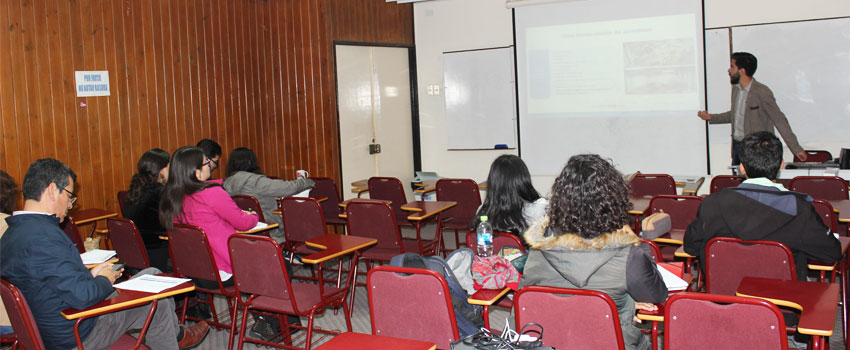
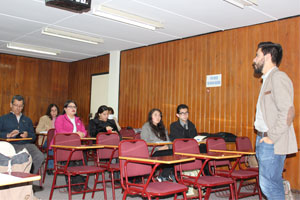 They also addressed what it means to understand the consequences and impact of the climate within the classroom on pedagogical results, and the identification of critical competencies that teachers must possess to address conflictive issues within the classroom.
They also addressed what it means to understand the consequences and impact of the climate within the classroom on pedagogical results, and the identification of critical competencies that teachers must possess to address conflictive issues within the classroom.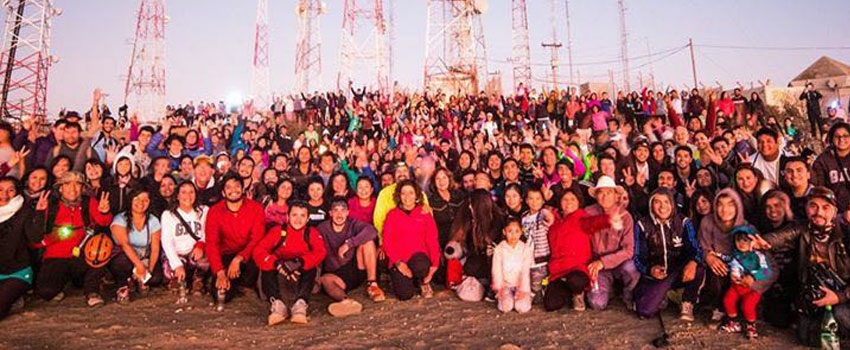
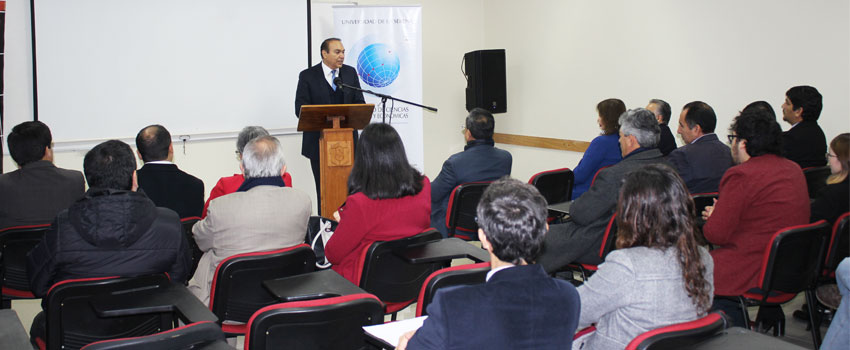
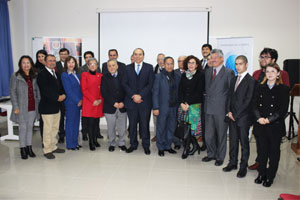 The inauguration of the remodeling of this room was part of the commemoration of the eighteenth anniversary of the Faculty of Social and Economic Sciences, and was attended by university authorities, headed by the Rector of the ULS, Dr. Nibaldo Avilés; the Dean of FACSE, Dr. Luperfina Rojas; managers, academics, officials and students of the career. On the occasion, attendees were able to appreciate the work to improve the space, which included changing the floor, ceiling, curtains and lighting, painting and new furniture and technological equipment.
The inauguration of the remodeling of this room was part of the commemoration of the eighteenth anniversary of the Faculty of Social and Economic Sciences, and was attended by university authorities, headed by the Rector of the ULS, Dr. Nibaldo Avilés; the Dean of FACSE, Dr. Luperfina Rojas; managers, academics, officials and students of the career. On the occasion, attendees were able to appreciate the work to improve the space, which included changing the floor, ceiling, curtains and lighting, painting and new furniture and technological equipment. 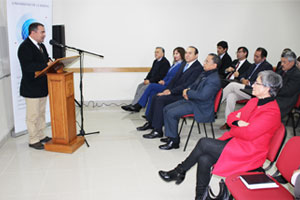 The authority also assured that another clear example of the policy of developing new buildings and systematically improving the facilities for students is the construction of the Study Workshops - Reading Room of the Andrés Bello Campus, a work that is added to other improvements to be made in this facility and that will directly benefit the students.
The authority also assured that another clear example of the policy of developing new buildings and systematically improving the facilities for students is the construction of the Study Workshops - Reading Room of the Andrés Bello Campus, a work that is added to other improvements to be made in this facility and that will directly benefit the students. 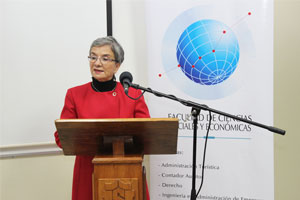 For the president of the Journalism Student Center, Felipe Muñoz, the remodeling of the room and the implementation of this type of initiatives “is very important for us students because it allows us to improve the study spaces, places where we spend a large part of the day and week. "We need spacious and pleasant places, with good lighting to facilitate and enhance our studies."
For the president of the Journalism Student Center, Felipe Muñoz, the remodeling of the room and the implementation of this type of initiatives “is very important for us students because it allows us to improve the study spaces, places where we spend a large part of the day and week. "We need spacious and pleasant places, with good lighting to facilitate and enhance our studies."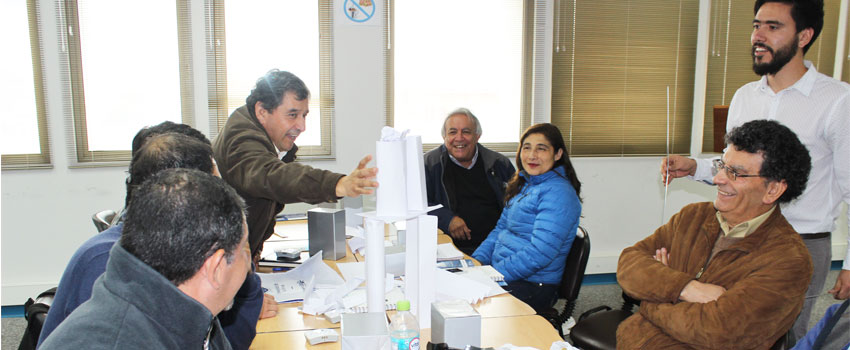
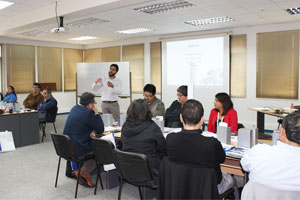 In turn, the person in charge of the OSE, Mg. Luis Carrasco Castro, had the opportunity to present the new platform that is related to the System for the Management of Information and Indicators of Graduates, SIGIT, an integrated and scalable tool that allows linking the University with the graduate and the world of work, through from various employers, key agents in the environment, as well as integrating students with a graduation profile, allowing them to foster early ties with future employers.
In turn, the person in charge of the OSE, Mg. Luis Carrasco Castro, had the opportunity to present the new platform that is related to the System for the Management of Information and Indicators of Graduates, SIGIT, an integrated and scalable tool that allows linking the University with the graduate and the world of work, through from various employers, key agents in the environment, as well as integrating students with a graduation profile, allowing them to foster early ties with future employers.